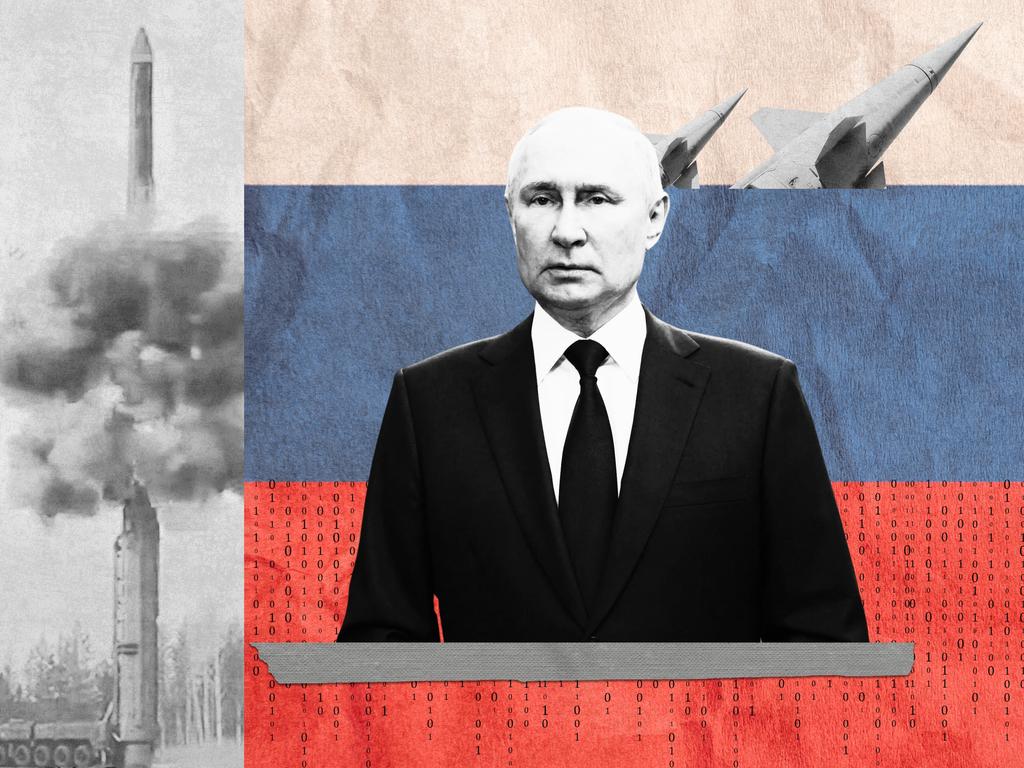‘Whole world waits’: Climactic episode looms in the Trump show
Few forces have stood against the US President and prevailed. Now he faces crises on multiple fronts.
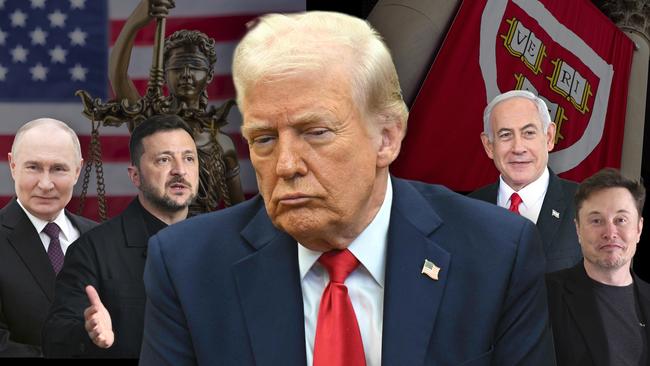
Donald Trump is about to make a series of decisions that will determine how the planet and its eight billion people live in the decades ahead. Trump once said the difference between his first term and his second is that in his first term he ruled America, in his second he rules America and the world.
It’s an exaggeration, of course, but Trump is central to everything of consequence happening in the world today. The US Court of International Trade has ruled his punitive tariffs illegal. The Trump administration imposed them under the International Emergency Economic Powers Act of 1977. The court found there was no credible emergency.
Trump is challenging the ruling and was successful in keeping the tariffs in place until the appeal fully unfolds. His administration is also seeking out other ways he might legally impose tariffs if he ultimately loses this appeal.
The global economy still waits at a crossroads, unable to work out what Trump will do. Russia, Ukraine and Europe await Trump’s considered reaction to Vladimir Putin’s determined aggression and his spurning of Trump’s call for a ceasefire and peace. Trump has fallen out of love with Putin, saying: “He’s killing a lot of people, I’m not happy about that” and “he’s gone absolutely crazy”.
China’s Xi Jinping waits for Trump’s next tariff move as Beijing gears up to take Taiwan by force. What will Trump do on tariffs? What would Trump do if Beijing blockaded Taiwan or invaded?
The Iranian mullahs have decided to run down the clock in negotiations with Washington. They’ve concluded Trump won’t attack them militarily, even if Tehran insists on retaining uranium enrichment. Enriching uranium means Iran gets a bomb eventually.
These lengthy negotiations, resembling Barack Obama’s, are distressing to Israel, which sees its interests substantially diverging from Trump’s, though he’s still a tight ally. Trump wants the fighting to end in Gaza. Israel’s Benjamin Netanyahu says he’s not finished extirpating the terrorist group Hamas from Gaza. Netanyahu has concluded Israel itself must administer most of Gaza.
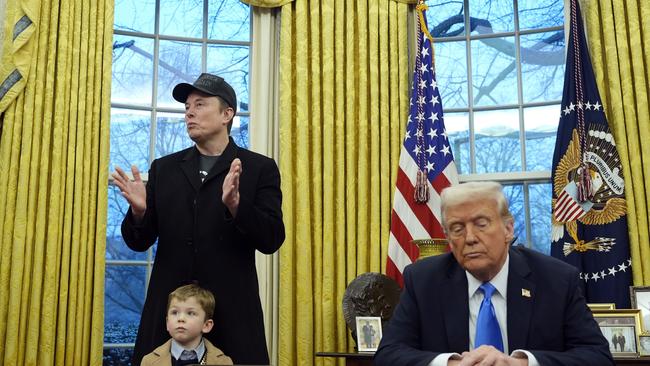
Back home, Trump wages war on Harvard and, less intensely, other Ivy League universities. The Ivy League universities have earned themselves such a toxic reputation with ordinary Americans that for Trump it’s a popular war, especially with his base, despite his normal excesses.
The world’s richest man, Elon Musk, has left his Department of Government Efficiency. He reportedly remains on good terms with Trump but leaves disappointed, frustrated.
Trump has got his “big, beautiful” tax bill passed by the House of Representatives. It continues Trump’s first-term tax cuts, adds a few others, tightens work requirements for Medicaid, adds spending on border control and the like, and offers a defence budget of $US1 trillion ($1.5 trillion). Part of Musk’s disillusionment came from this bill. He thinks it will add $US2 trillion to the federal deficit over a decade, though it was touted as reducing the deficit.
Part of Trump’s defence policy is creating a “Golden Dome” missile defence system designed to protect the US from missile attack. It may cost, Trump thinks, a little less than $US200bn and be deployed by 2028. Most analysts think it will cost much more and take much longer. But Trump is ambitious.
The Senate will pass some version of the “big, beautiful” bill but a lot of horse-trading and rank pork-barrelling will go into it before it’s finalised in the next months.
In all these issues, what Trump decides – not what his administration thinks but what he personally decides – will be the critical factor. That doesn’t mean Trump will get his way every time. On many issues he’ll be thwarted and frustrated. But few forces have stood directly against him and prevailed. His most intractable opponents at the moment are the courts. The Democrats hardly count.
Of the eight billion or so people on the planet today, Trump has the greatest agency, the greatest influence, the greatest raw power. Trump is the most famous man in the world and the most powerful.
Ethically Trump is a black hole. His businesses, his family, are getting much richer because he’s President. That doesn’t faze his supporters. It certainly doesn’t happen in the shadows. Trump’s pre-emptive self-defence is epic chutzpah, sheer brazenness. Simultaneously, Trump is pursuing serious policy aims. Trump derangement syndrome takes many forms but paying close attention to Trump is not the problem. Understanding his purposes is key.
Before the court quashed, temporarily, his tariffs, Trump was politically resurgent. He had stellar poll numbers at his inauguration in January. But then when he launched his Liberation Day global tariffs, targeting virtually the whole world, his numbers dived. When Joe Biden’s numbers collapsed after the grossly mismanaged retreat from Afghanistan, they never recovered. Trump’s different.
The bond markets tanked. Americans realised widespread tariffs would mean big price rises on goods they regarded as life’s essentials. So, partly to avoid a financial crisis and a collapse in domestic support, Trump retreated on tariffs, delaying their application so trade deals could be negotiated.
Astonishingly, his numbers came back. In April, Trump’s poll numbers had crashed. According to the RealClearPolitics average of polls, his approval rating was 45.3 per cent and his disapproval rating 52.4 per cent, a gap of 7.1 points. But the most recent poll average has Trump’s approval rating recovering to 47.7 per cent and his disapproval down to 49.3 per cent, a gap of 1.6 points. So Trump is still under water but in two months he has improved by 5.5 points.
Trump is truly protean. The word might have been invented just for Trump. Proteus was a disagreeable and unpredictable Greek god who, when asked difficult questions that he didn’t like, changed his shape and became something else altogether.
Kim Beazley once remarked that Trump didn’t have developed policies or indeed a consistent policy framework. He has prejudices, hostilities, attitudes. These can be translated into policies. The one exception is tariffs. Trump has passionately believed in the effectiveness, indeed the shining virtue, of tariffs, for decades.
Economist Chris Richardson tells Inquirer that Trump believes trade deficits are bad for America and inherently unfair, and his only remedy for them is tariffs. But, Richardson says, the true remedy is quite different: “There are imbalances in the world trade system but I wouldn’t try to fix them with tariffs. The US budget deficit is about 6.5 per cent of US national income and the trade deficit is about 3 per cent of US national income. We used to call them the twin deficits. China has a very inadequate social credit problem.”
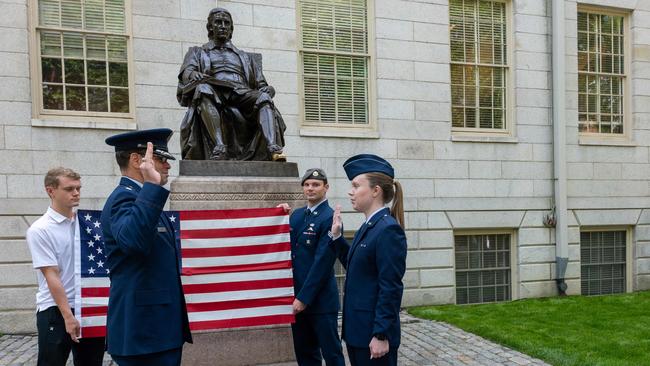
So, Richardson says, the solution is simple. If the US budget were in balance the US would have 2 per cent of GDP less to spend on goods and services. That would mean fewer imports.
If the Chinese provided greater social welfare, they would spend a lot more on goods and services and save less because they wouldn’t have to provide for life’s contingencies entirely on their own. They would buy more, including more imports.
The US would spend less, export more and import less. China would spend more, export less and import more. But it’s not likely to happen.
Trump faces fateful decisions, especially on Russia-Ukraine and Iran. What clues can we get from his behaviour so far this term? Consider these three episodes, which are clearer now in retrospect than they were in real time.
Episode one: Musk. Musk is the richest man in the world and must be, therefore, one of the smartest men in the world. But it seems he has been effectively played by Trump.
Trump seduced Musk into becoming a lavishly munificent, wildly enthusiastic supporter. He held out to Musk the chance to remake the federal government, appealing to Musk’s ego, sense of manifest destiny and no doubt his desire to do some good. Musk thought that at DOGE he would transform the behaviour and size of government. He talked about taking $US1 trillion or $US2 trillion out of government spending.
Musk did disrupt some agencies, especially in US aid, cultural policy and the Education Department. Some of his mass firings were reversed in court. But DOGE now claims it has cut only $US150bn of federal government spending. That’s almost certainly a substantial exaggeration. Nonetheless, it’s significant money.
But Trump never let Musk and DOGE anywhere near the real concentrations of US spending. The big money goes in transfer payments, especially Medicare, Medicaid, Social Security and Defence.
Musk, along with some other Make America Great Again types, once thought he could cut defence spending yet deliver a more effective military. In truth, like all allied nations, Washington needs to spend more on defence. Trump wouldn’t let Musk touch at least 85 per cent of federal spending.
Yet the whole DOGE episode was immensely useful to Trump. Clearly, Trump has no intention at all of seriously tackling the US budget deficit, which is about $US2 trillion. But he wanted DOGE to make it look as though that’s what he planned to do. Trump understood that DOGE would drive liberal commentators insane, enrage the deep state, send the moral denouncement meters off the charts. But it was actually a cover for doing too little, not an effort to do too much.

Episode two: In February, against the opposition as we now know of Vice-President JD Vance, Trump began a big bombing campaign against the Houthis in Yemen. Trump hates foreign military entanglements. But in his first administration he undertook one big campaign, to destroy Islamic State. This served to reinforce the message of US deterrence. After that, Trump was very reluctant to get involved in any direct military action. He’d threaten such action but never take it. Those who think Trump a uniquely dangerous President should bear that in mind.
Washington was bombing the Houthis, allegedly to protect US shipping in the Red Sea. But the Houthis had effectively already stopped attacking US shipping. At some point Washington and the Houthis agreed the campaign would end. Trump declared victory and even said something nice about the Houthis. Yet even as they were concluding the agreement, the Houthis fired missiles at Israel, at least one of which hit Tel Aviv airport.
Trump didn’t really care about that. Like DOGE, the Yemen bombing campaign was a species of Trump theatre. He undertook one safe military campaign just to answer the critique that Trump never carries out his threats. The primary objective of the bombing campaign was not to eliminate the Houthi threat, though of course that was a secondary objective. The primary objective was performative, theatrical. Look at me! I can do a real military campaign if I want to.
Episode three: The April 2 Liberation Day tariffs. These were not just theatre, they established negotiating leverage. They were theatrical in that they weren’t designed ever to be implemented, apart from the 10 per cent base tariff, which Trump wants as a perennial revenue raiser. The Financial Times coined the term “TACO”, meaning Trump always chickens out from carrying out his worst threats. That seems a slightly strange term as surely the FT wants Trump to chicken out.
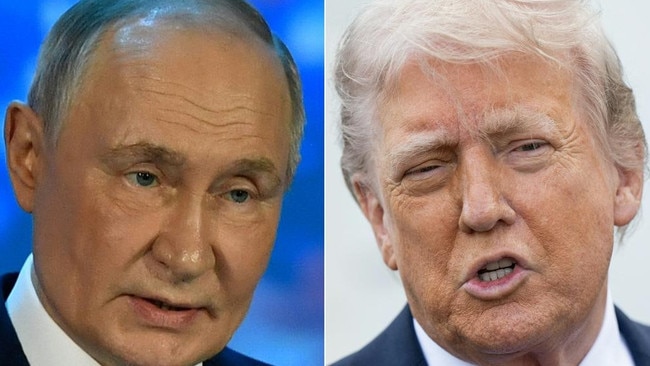
Trump often makes real mistakes, then fraudulently claims they were always part of his subtle, if not inscrutable, negotiating strategy. On the other hand, he does also engage in negotiating tactics. Clearly he never planned to impose most of the tariffs but to use them to get beneficial deals for the US. Naturally, we all have to take the President at his word, so there were many semi-apocalyptic economic analyses of what the tariffs would do.
Trump was forced to change perhaps more quickly than he planned because the bond markets became unstable and US Treasury bonds needed higher interest rates to attract borrowers. Indeed the only two powers in the world that to some extent have been able to force Trump into reversals are the bond markets and US courts.
By taking an extreme position initially, Trump makes a lesser position, which once would have looked extreme enough, seem mild. Often the key to understanding Trump is to recognise the theatrical shape and purpose of an episode.
What’s Trump going to do about Russia and Iran? Malcolm Davis of the Australian Strategic Policy Institute tells Inquirer that Putin has no interest in a ceasefire or peace deal because he’s making gains on the battlefield.
Davis says Putin wants a clear win in Ukraine, which doesn’t mean controlling all of its territory. He could then use this as a basis in a few years for an attack on the Baltic states, perhaps Lithuania or Estonia. NATO would not go to war for these states. Certainly Trump wouldn’t. Putin could thus re-establish Russian dominance of east and central Europe, shatter NATO’s credibility, destroy the trans-Atlantic alliance and extend his co-operation with China and Iran.
Trump seems to have completely misread Putin in thinking Putin was interested in peace. In fairness to Trump, his flawed instinct on Putin was similar to that of Obama. Remember Hillary Clinton as Obama’s secretary of state producing a “reset button” for relations with Moscow? Before that George W. Bush made similar efforts to use a personal relationship with Putin to effect geo-strategic change. All failed.
Trump was much tougher on Putin in his first term. Assuming Putin won’t do a peace deal, Trump has threatened to walk away from the Russia-Ukraine war. If that walking away means no more American weapons and intelligence support to Ukraine, the embattled nation will struggle mightily, with only European assistance. It would be a dreadful legacy for Trump. Alternatively, Trump could ratchet up pressure on Moscow by continuing military support and also levying secondary sanctions on countries that trade with Russia.
On Iran, Trump must decide whether, if Iran won’t give up enriching uranium, he will back an Israeli strike on its nuclear facilities. Trump hates that kind of unpredictable conflict but the Israelis rightly see Iran as an existential threat. Moscow and Tehran will search for formulas that let Trump declare victory but safeguard their key interests.
Any American administration would struggle mightily to handle all these issues simultaneously. What is unique in our moment is that Trump is handling them all personally. That gives him great flexibility, but it’s a disastrously amateurish approach that militates particularly against institutional follow-up and stability.
Still, the whole world waits on him. But there’s nothing institutional about Trump, and he never promised stability.




